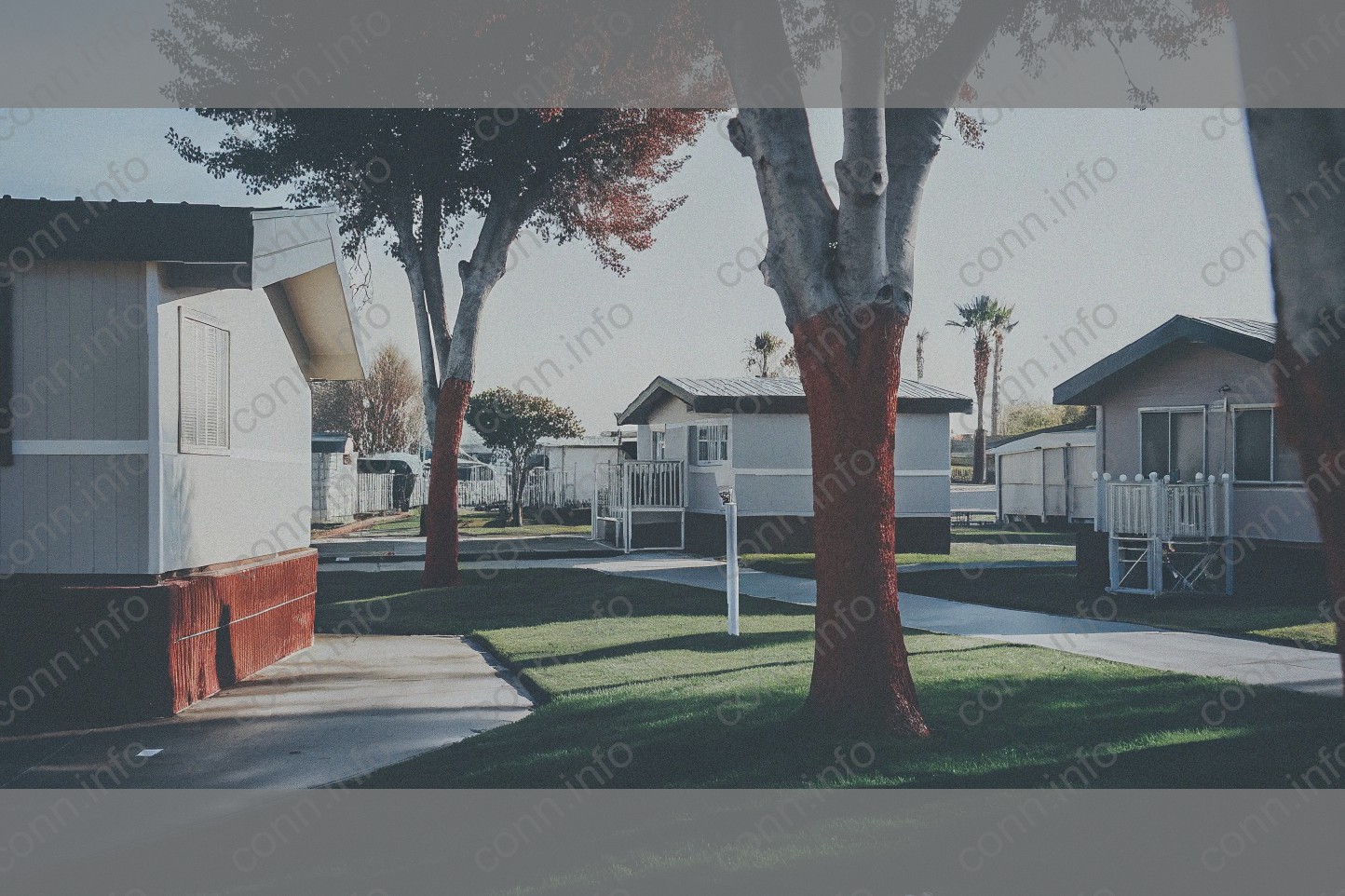What is a Mobile Home Lot Lease Agreement?
Mobile Home Lot Lease Agreements are occupancy agreements in which a tenant pays a landlord to occupy a designated lot in the community, but the tenant is not the owner of the lot. The tenant’s only responsibility is to pay the regular and reasonable monthly rent for occupying the lot. Mobile Home Lot Lease Agreements are common when a mobile home owner occupies a home in a park or community where the home is leased, rather than owned, by another individual.
Mobile Home Lot Lease Agreements outline the obligations of each party to the arrangement and include , among other things, details regarding the following:
Mobile Home Lot Lease Agreements have been popular since 1976, and Federal law requires all mobile home landlords to use the same form Lease. The plan behind the Mobile Home Lot Lease provides that a standard Lease will protect tenants when dealing with different landlords and will streamline the process when qualifying prospective tenants. This is an example where rules and standards are beneficial for both parties.
Key Terms and Conditions
The foundation of any mobile home community is the lot lease agreement. While the leasing parties may negotiate various terms, the agreement usually contains certain essential terms and clauses. Depending on content, the lot lease may be referred to as a rental agreement, park rulebook, or community regulations. Community rules that are incorporated into the lot lease usually have the same binding effect as if contained in the agreement. The lease often contains a section entitled "park rules" or "rules and regulations" that incorporates all community rules by referenced. A mobile home lot lease should include the following key terms:
Parties. The parties should be clearly defined. If the lease is with a company, the lease should be in the name of the company or its wholly owned subsidiary. The lease should also contain the address of the company and appropriate signatures from an officer of the company. In some states, the lease must be executed by the community owner, must be on a form approved by the state, and/or must be filed or recorded with a public agency. If the community has been sold or is in foreclosure proceedings, the lease should be with the owner of the land and not the property manager.
Location of Premises. The property identified is the land that the tenant is leasing. If the tenant will be responsible for maintaining any common areas, this should be clearly set out in the lease.
Term. Many community leases are for a specific term. If the lease does not contain a specific term, the lease is a month-to-month tenancy.
Rent. The amount of rent and when it is due should be clearly set out in the lease. The terms under which rent may be increased and how the increase is determined are covered in detail below.
Security Deposits. Most leases require some type of security deposit or fee. The lease should specify how the security deposit is calculated, how the deposit will be held, how and when the deposit will be returned, and any conditions under which the deposit may be withheld. In addition, security deposits should be kept in a separate bank account. Current laws in 14 states and the District of Columbia impose strict requirements regarding the handling of security deposits, including where and how the deposit must be deposited, the amount of interest that must be paid on the deposit, and the time period within which the deposit must be returned to the resident.
Utilities. The lease should specifically set forth who is responsible for paying water, sewer, gas, electric, and other utilities. The lease may require the resident to provide proof that they are utility customers prior to their occupancy, such as a copy of the resident’s utility bill upon request.
Home Maintenance. The lease should specifically set forth the parties’ responsibilities for lawn, landscaping, and common area maintenance. In addition, the lease should contain specific references to who is responsible for repairing utility systems and utilities lines that service the home. Tenants are generally responsible for damage to utility lines below ground (the portion of the line between the home and the sidewalk or street). Community owners usually cover the repair of utility lines above ground. Community owners are usually also responsible for the repair of any utility lines servicing common areas, such as street lights, pool and spa, and clubhouse.
Tenants’ Rights and Duties
For the most part, a mobile home lot lease agreement is similar to a lease agreement for an apartment. If a tenant abides by the rules and pays rent, they have the right to remain in their home. Otherwise, the tenant could be evicted. There are, however, some unique rights and responsibilities that a tenant has under a mobile home lot agreement. These rights and responsibilities are outlined in the Texas Property Code. What follows is a summary of some of those rights and responsibilities.
• The lease agreement must include a provision that allows the tenant to place an identification number on their home, and that requires the park owner to maintain a directory of all homeowners. (Tx. Prop. Code § 94.052).
• A tenant may not use their home or the lot for commercial purposes, storage, or any unlawful purpose. (Tx. Prop. Code § 94.053). If a tenant is found to be violating any of these provisions, the park owner may have the right to evict the tenant. (Tx. Prop. Code § 94.054).
• If a tenant has filed a lawsuit against the park owner for any violation of a lease, even if the tenant loses, the lease agreement may not be terminated by the park owner. (Tx. Prop. Code § 94.051).
• The park owner may not evict a tenant by using rules and regulations. (Tx. Prop. Code § 94.056).
• If a tenant owns their home, the landlord may not remove the home without first paying the tenant the amount it exceeds the non-payment of rent and reclaiming possession of the lot by judicial order. (Tx. Prop. Code § 94.058). Unless this occurs, if a park owner evicts a tenant and enters their home, the park owner may be subject to substantial damages. (Tx. Prop. Code § 94.059).
• A tenant has the right to one designated parking space, if available. (Tx. Prop. Code § 94.061). This basic parking space does not require the park owner to pave the area and does not protect the tenant from any towing rules that apply to all parking areas. (Tx. Prop. Code § 94.062).
• There is no limit on the number of vehicles a tenant can have on the leased lot. (Tx. Prop. Code § 94.063). This does not mean the lots should be filled with vehicles; each subdivision is required to have certain rules regarding the parking of vehicles on the lots the same as rules for the common areas. (Tx. Prop. Code § 94.064).
Landlord’s Responsibilities
Landlord Obligations under a Mobile Home Lot Lease Agreement
If you are leasing a mobile home lot, it is important to know who is responsible for maintaining certain areas and repairing or replacing infrastructure. Did you know in most cases the landlord is going to be responsible for maintaining the common area (if there is one) and all of the improvements on the land? Within this section, we will review (a) the obligations of the landlord (b) the tenant’s responsibilities for maintenance repairs and improvement, and (c) the landlord’s obligations to maintain common areas.
It is not unusual for a landlord to require the tenant to maintain the tenant’s mobile home and lot improvements in a rental agreement. However, those improvements are typically the tenant’s responsibility and would not include the underlining infrastructure such as sewer, electric, water, roads, utilities lines, etc.
"Tenant Improvements" made by the tenant upon the space are the tenant’s responsibility. "Common Areas" refers to all areas within the park, whether improved or unimproved, that are for the common use and enjoyment of all tenants. The landlord is responsible for maintaining, repairing and replacing all Common Areas of the park at the landlord’s expense within a reasonable time after a request to do so.
Common Lease Violations
Lease violations in mobile home communities can take many forms, but the most common include non-payment of rent and unauthorized changes to the lot or the premises. For example, a mobile home park owner may terminate the lease if a tenant fails to pay two months’ rent. However, to terminate the lease, the owner must provide the tenant with 14 days’ notice and give the tenant an opportunity to pay the rent before the property is seized and leased to another tenant or person. Some owners may not allow a tenant to replace a mobile home on their lot , while others may not allow pets. However, virtually all owners will require that a tenant keep their lot in a good state of repair and clean and sanitary conditions. An owner may choose to terminate the lease if a tenant fails to maintain their lot or fails to repair deficiencies after they’ve been notified of the need for repairs.
Negotiating an Agreement
While it is possible to hire an experienced local real estate attorney to help you review the terms of a mobile home lot lease agreement, many landlords and tenants negotiate their leases without the use of counsel. Therefore, tenants may want to consider the following strategies when negotiating the terms of a mobile home lot lease agreement. Additionally, since there are many different types of lease agreements, the tenant will want to thoroughly review both the specific lease agreement and the state statutes providing for mobile home lot leases as soon as he or she gets a copy of the lease agreement. By doing this, the tenant will be able to formulate any specific questions he or she may have for the landlord regarding the lease agreement or specific requests for modifications. For instance, the tenant may want to add language to the lease agreement stating that the tenant should be notified in advance of any inspections to a unit, should be notified in advance of any sort of construction work on the property, or should be notified if someone other than the landlord plans to enter the unit for any reason.
If the tenant is being proactive about the lease agreement prior to signing, he or she can present the proposed modifications to the landlord prior to moving onto the property or prior to the time that the tenant expects to be moving onto the property. If the landlord agrees to the terms, the tenant can be sure that he/she will be protected by those modifications for the entire duration of the lease agreement. However, if the tenant waits until after the lease is signed to request these modifications, the landlord may not agree to those terms and it may be difficult or impossible for the tenant to convince the landlord to change the terms of the lease.
Resolving the Conflict
While mobile home lot lease agreements include legal protections and are subject to a variety of applicable statutes (including the New Jersey Planned Real Estate Development Full Disclosure Act), disputes still sometimes arise between mobile home lot tenants and their landlords. Typically, these disputes fit into one of three basic categories:
Mediation is typically the first avenue that should be attempted to resolve a mobile home lot lease dispute. Mediation is a non-adversarial form of alternate dispute resolution whereby a neutral third party acts as a facilitator to assist the dispute resolution process. It is important to note that mediation is not binding on either party; it is only if an agreement is reached that the parties then sign a binding agreement setting forth the terms of such settlement. Mediators are individuals with experience and training related to dispute resolution and can be found most prominently at the courts and through the American Arbitration Association and various community-based organizations. Mediation is typically free through the courts, and there generally is no fee for private mediators who are affiliated with the American Arbitration Association or community-based organizations.
The New Jersey Judiciary Center for Dispute Resolution provides information on different types of mediation programs within the Unified Family Court Practice and mediation programs available through the courts. Online materials also are available through the American Arbitration Association.
Although parties are free to agree to mediation at any time, it is often helpful for a party to make a written demand that a dispute be mediated prior to filing suit against an adverse party for breach of a mobile home lot lease agreement. Subsequently, if mediation fails to resolve a dispute, the non-breaching party may elect to institute formal legal proceedings in accordance with applicable court rules.
Legal Considerations and Protections
As mobile home living is a unique situation, the legal considerations of these agreements differ from that of regular tenancies. Most states, including Florida, have laws that specifically address the landlord’s and tenants’ rights and responsibilities within mobile home parks. These laws are typically enacted on a state-wide level, though they might differ based on the specific county or municipality as well. These statutes also usually define the extent of a rental agreement or lease agreement as applied to mobile home lots.
States may also have their own local Human Rights Commissions that enforce provisions of federal law. Under the Fair Housing Act (FHA), the U.S. Department of Housing and Urban Development (HUD) has found that housing discrimination against families with children, particularly for those being denied housing in a community because they have young children, is illegal. The FHA deals with actual residences rather than vacant land, but some courts have found that its protections extend to manufactured home parks. HUD Policy Statement 77-17 prohibits refusals to sell lots in mobile home parks to families with children when 90 percent of the residents are 55 years of age or older. If federal law applies in certain scenarios, then it may be presumed that state law would also apply, thereby providing protections to residents in manufactured home parks.
As such , our Florida courts have regulated the actions of landlords and lessees in situations involving mobile home park tenancies. Section 320.835 of Florida Statute similar to HUD Policy Statement 77-17. It states: "Section 320.8351(1), F.S. This section shall be known as the Mobile Home Owners’ bill of rights. (2) The Legislature finds that there exists in this state a shortage of affordable, safe, sanitary, and decent rental accommodations for mobile home owners. (3) The provisions of ss. 509.221-509.261, and ss. 513.011-513.911, Florida Statutes, shall apply to all mobile home parks within the state."
Similar to Florida’s Fair Housing Act, The FHA defines familial status as "one or more individuals (who have not attained the age of 18 years) being domiciled with . . . a parent or another person having legal custody of such individual or individuals." 42 U.S.C. §3602(k). Familial status protection applies to those who have obtained legal custody of a minor or who have the written permission of the parent or legal custodian. Furthermore, Section 820.660 states: "It is unlawful to discriminate on the basis of familial status tocoerce, intimidate, threaten, or interfere with any person because he or she has exercised or enjoyed, or on account of his/her having exercised or enjoyed . . ." 42 U.S.C. §3604. This is a very broad anti-discrimination law that covers a wide range of situations. Tenants can prepare for any potential litigation against them by being familiar with these laws and their applicability.



